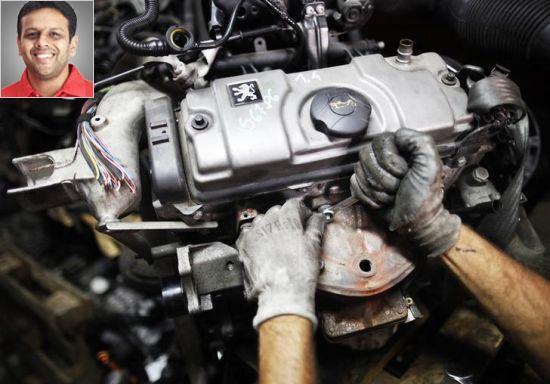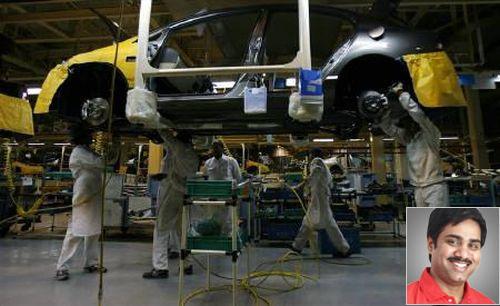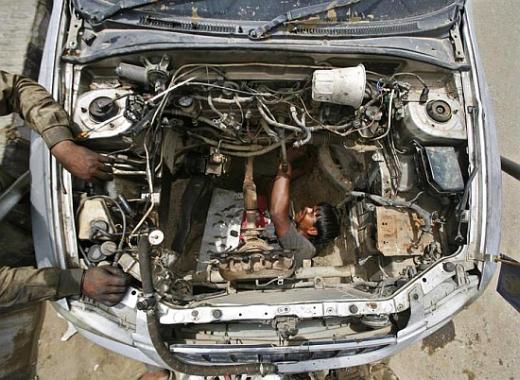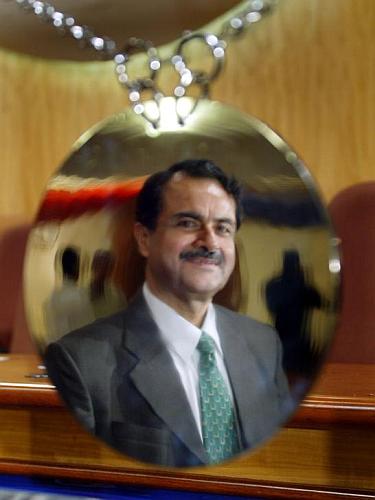
When Lenish Kumar Peter wants to have his sedan serviced, it's not the dealer he approaches. Often, inconsistency in the quality of service by the dealer has led to his car's problems remaining unresolved.
He now brings his car to CarZ, a multi-brand car service chain.
Madhu M S, whose Honda CRV has clocked about 100,000 km and needs a bit of an overhaul, says, "I am more happy with this place (CarZ), as it's cleaner and I am allowed to see what exactly is going on with my car. It is not at the mercy of mechanics. Also, my house is just across the road."
In most countries, growth in passenger cars has been closely followed by the development of independent service centres. Globally, only a third of cars go back to dealers after the expiry of the manufacturer warranty.
The car servicing market has companies such as Carnation, promoted by Jagdish Khattar, former chairman and managing director of Maruti Suzuki. It also has TVS Group's MyTVS and Mahindra First Choice.
While these companies are known names or have brand names backing them, CarZ has only its performance to rely on.
"We have built a model that focuses on three core principles - great service, budget price and convenience," says Vijay Gummadi, chief executive and co-founder.
...

"CarZ's service centres are small, equipped to handle up to 20 cars a day. They are located in the vicinity of residential or commercial neighbourhoods. We provide a full range of electrical and mechanical repairs, accident repairs and wash and detailing services for all brands of vehicles, in addition to extended warranties and insurance renewals."
Says Venu Donepudi, managing director and co-founder: "Our focus is on providing car repair with the expertise of your dealer and the comfort of your local mechanic."
CarZ has stuck to its small size; this has helped the company optimise infrastructure and resources. Its bigger rivals, however, are said to be struggling to optimally utilise their facilities.
CarZ was founded by two US-based engineers, Gummadi and his cousin, Donepudi, in 2008. It commenced operations in 2010.
After opening a branch each in 2009-10 and 2010-11 (both in Andhra Pradesh), it launched 15 outlets in 2011-12 across Andhra Pradesh, Karnataka, Tamil Nadu and Kerala. Now, the company is on a consolidation drive. So far, it has invested Rs 26 crore (Rs 260 million).
Since it started operations, the company has recorded revenue growth of about 200 per cent (compounded annual growth rate). By 2015, it projects this at about Rs 100 crore (Rs 1 billion).
Dealers view this rapid growth with trepidation. For dealers, much of their income is accounted for by after-sales service.
...

"Customer perception, costs, services, and winning the consumer's heart and mind are vital in this business. Word of mouth is very rapid. The problem is, no one is consistent. While one may be good, one may also be extremely bad," said the owner of a 20-year-old authorised Maruti Suzuki service station, on condition of anonymity.
Says Abdul Majeed, partner and national automotive leader, PricewaterhouseCoopers: "Car owners' concerns about going back to dealers usually relate to the quality of service, pricing and transparency."
"This business model is just like that of a supermarket. It's all about convenience and location." If professionals took care of vehicles, even if one had to pay more, he/she got value for money, Majeed said.
Khattar says with barely 1 per cent of cars going to organised multi-brand networks, "There is ample scope for growth for all the players in the market."
"OEMs (original equipment manufacturers) can focus on manufacturing. So, they don't need to focus on after-sales service. As margins in sales are very thin, dealers make their money from after-sales service," said a senior official at an automobile major.
"The challenge is of spare parts. When service centres need parts, they are asked to approach dealers. If they supply directly, we have to face the ire of dealers," said another official at an automobile manufacturer.
Ignition
In 2007, Donepudi and Gummadi, then in the US, were on a visit to India. After watching the film Transformers in a theatre, the duo headed to the multiplex's dimly-lit basement parking lot.
...

At a distance, someone was waving, asking them to stop. As they approached the voice, they rolled down the window. "Hi! I am Vedika...my car won't start. At this hour, I am unable to get any help," said a young woman.
All their car-servicing experience through the years came in handy. Resolving the problem wasn't a major challenge for the duo. As Vedika left, she said she was impressed with them. They'd do well to build on their expertise, she added.
Through the months that followed, Donepudi and Gummadi narrated this episode to their friends. Across most of the reactions was a common theme.
Many said they, or people they knew, had often been stranded due to a problem with a vehicle. They added timely assistance in such cases was rare.
These reactions made Venu and Vijay wonder whether they could use their expertise to address the issue. And, CarZ was conceived.
The original CarZ logo had three characters: Venu, Vijay and Ved (a tribute to Vedika, the girl who, in a way, conceptualised the initiative).
CarZ was the culmination of Gummadi's passion for cars, which saw him washing vehicles for about 15 days at a Maruti Suzuki service station, till the manager allowed him to work as an intern, under an experienced technician.
Challenges
Initially, the major concerns for CarZ were availability of prime locations (critical to the business) in cities and availability of spare parts and skilled manpower.
...

"External entities doubted our ability to expand. However, we never doubted it. Today, we have demonstrated our ability to expand rapidly across geographies. Availability of prime locations isn't an issue, considering we've already been able to locate CarZ in prime areas, even in large cities. We now have the team, the capabilities and a cookie-cutter model in place to rapidly expand and build a respected network of car service centres across India," says Donepudi.
In India, most models from foreign car manufacturers are based on global platforms. This means spare parts are available in other regions (Europe, the US, Southeast Asia, West Asia, Japan).
In some of these countries, regulations ensure the availability of spares in the open market.
While CarZ procured most parts from either these sources or the growing number of after-market manufacturers, the entire industry could benefit from better availability of spare parts, Gummadi said.
The classic challenge for CarZ is a customer like Rufus V Monteiro, a businessman who owns four cars, all of different brands.
"After all the free services offered by the manufacturer, I refused to go back to the dealer for servicing," Monteiro says, talking about the multi-utility vehicle he bought a year ago. "The last time, I told them (the dealer) to wash the car and return it. They don't have the people to work on the cars."
"Spare parts, marketing and manpower are the three cornerstones of this business," said Suresh Chander, former senior general manager at MyTVS. Multi-brand car service firms were yet to master the way to deal with procurement of spare parts when hundreds of parts and their multiple variants for different models were involved, he added.
...

Expert Take: Jagdish Khattar
The industry is too young to be assessed. CarZ is just about a-year-and-a-half old. It is too young; it's impossible to say if it is a successful venture or doing things right.
This model, a very prominent one in developed countries such as the US, has just started to take roots in the country.
In the US, about a third of the vehicles go to such outlets to be serviced. In the case of India, it's barely one per cent.
This model allows for more transparency - from pricing of services to that of spare parts. Also, for a family that owns more than one car, especially of different makes, it saves the trouble of visiting multiple service centres. The organised multi-brand car services business is a boon for these people.
While CarZ's operations may be small, there's a debate on the advantages and disadvantages of small or big operations. If small, it would be viable very soon.
The more centres you have, the more difficult it is to manage these. It would be much better if you are spread out; visibility is more.
Also, if some major companies are looking for a location to service cars from different manufacturers, it is a very good business opportunity.
But as its operations grow, Carz could face a few issues. Organised players offer just one per cent of the car services business. So, there's opportunity for all, even if this becomes two per cent.
Jagdish Khattar, CMD of Carnation and former MD, Maruti Udyog Ltd